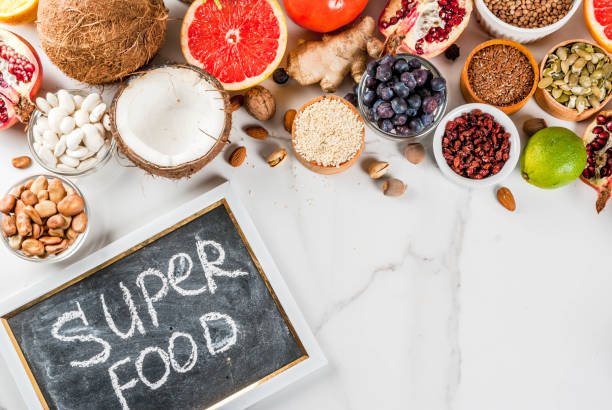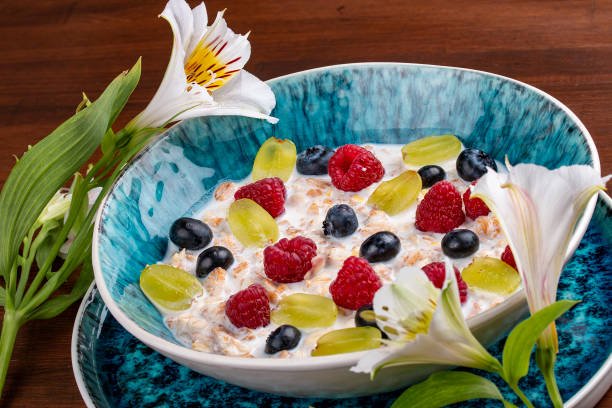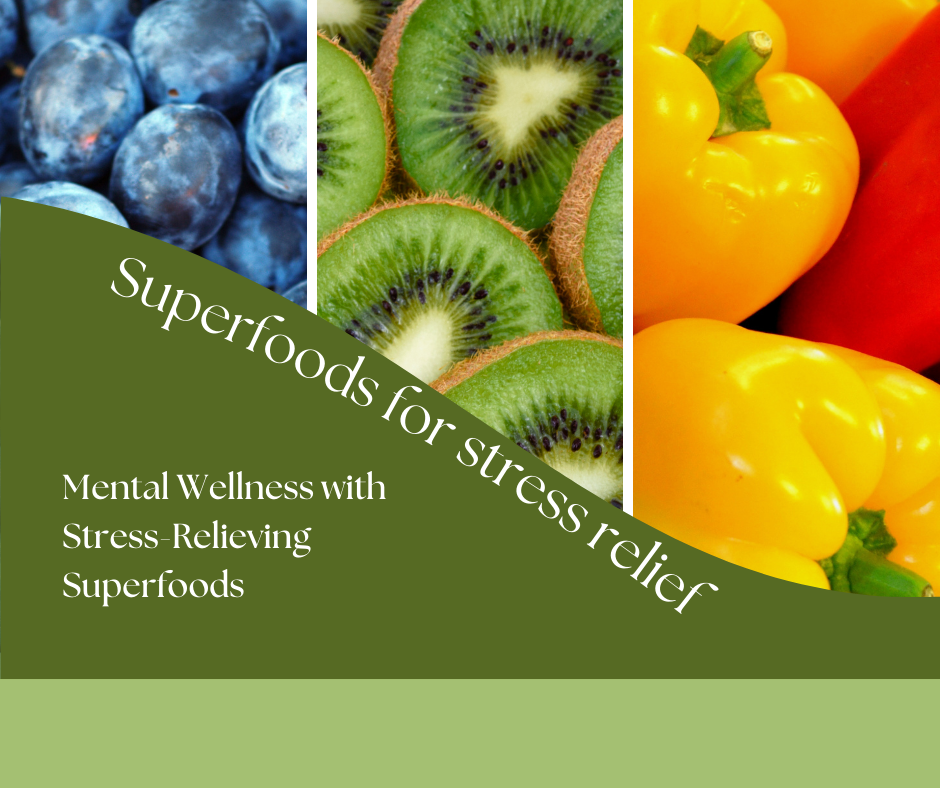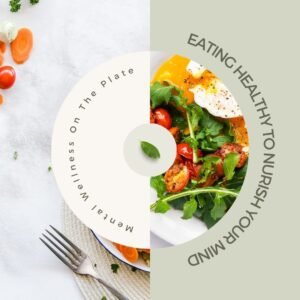Stress is a complex phenomenon that significantly impacts our food intake and emotional well-being. Research has shown that stress can lead to varied responses in terms of food consumption, with acute stress often reducing food intake while ongoing social stress tends to increase it. This response highlights how stress affects eating habits differently. Different types of stress can lead to different reactions when it comes to food. Understanding these variations can help us see how we use food to cope with stress. It gives us insights into how our emotions and what we eat are connected.

Understanding the Interplay of Stress, Food Intake, and Emotions
Daily stress can really affects how we feel both physically and mentally. One thing you might not know is that stress can change how our bodies works, like how we digest food and how hungry we feel. The complex relationship between stress and how much we eat involves many different significant aspects. To better comprehend the intricate interplay between stress, food intake, and emotions, it’s essential to examine the key aspects that significantly influence this dynamic relationship:

Stress and Food Intake
Stress exerts a profound influence on our eating behaviors, often leading to changes in appetite and food preferences. When individuals experience stress, whether from psychological pressures or environmental factors, it can trigger alterations in the regulation of hunger hormones, such as ghrelin and leptin, resulting in increased food intake. This phenomenon, known as stress eating or emotional eating, may involve the consumption of high-calorie, palatable foods that offer temporary comfort or distraction from stressors.

Stress has the potential to shape individuals’ dietary choices. In today’s fast-paced society, stress is an omnipresent factor, arising from a variety of sources such as work demands, family responsibilities, and societal expectations. When faced with stress, our bodies react with physiological changes as part of the “fight or flight” response, which involves the release of hormones like cortisol and adrenaline. These hormonal fluctuations can significantly influence our hunger levels and food preferences, thereby impacting our eating behaviors. Studies suggest that individuals experiencing stress may develop stronger cravings for foods high in fat, sugar, or salt, commonly known as “comfort foods.” These foods are thought to activate reward pathways in the brain, providing a momentary sense of pleasure and relief from stress. However, relying on comfort foods as a coping mechanism can lead to unhealthy eating habits and potentially contribute to weight gain over time.

Additionally, stress commonly disturbs our usual eating routines, leading to irregular meal schedules or even skipping meals entirely. People react to stress in various ways; some may lose their appetite, while others turn to food for comfort i.e. emotional eating. This can initiate a harmful cycle where stress reinforces unhealthy eating behaviors, subsequently heightening feelings of stress and anxiety. Ultimately, this cycle of stress, unhealthy coping mechanisms, and heightened stress levels can lead to negative consequences for both physical and mental health, underscoring the importance of finding healthier ways to manage stress and cope with emotional challenges. However, as responses to stress vary among individuals, some choose to consume fewer calories or opt for healthier food choices in times of stress. In such cases, stress can prompt positive changes in eating habits.

To effectively manage stress and avoid relying on food as a coping mechanism, it’s crucial to listen to our body’s hunger signals and explore alternative strategies for stress relief, such as engaging in physical activity or social interacting with friends and family. Though, stress often leads to hurried or unconscious eating habits, which may complicates our relationship with food. The presence of tempting foods and social eating environments can undermine efforts to make healthy choices. This impact of stress on food intake is compounded by environmental and social factors, as stressful situations frequently trigger social eating behaviors like snacking while watching TV or indulging in comfort foods during social gatherings. Additionally, the easy accessibility of certain foods, such as fast food or vending machine snacks, can facilitate succumbing to unhealthy eating habits during times of stress.

So, how can we navigate the stress-food connection and maintain healthy eating habits in the face of stress? One approach is to practice mindful eating, which involves paying attention to our hunger cues, savoring each bite, and being aware of our emotions and thoughts around food. Additionally, finding alternative ways to cope with stress, such as exercise, relaxation techniques, or social support, can help reduce reliance on food as a coping mechanism.
Here are some examples of the mindful eating approach:
Savoring Each Bite: Do not rush through meals, take your time to fully appreciate the taste, texture, and aroma of each bite. Focus on the sensations in your mouth and how the food makes you feel.

Eating Without Distractions: Practice eating without distractions such as watching TV, scrolling through your phone, or working at your desk. Instead, devote your full attention to the meal and the experience of eating.
Listening to Hunger Cues: Pay attention to your body’s hunger and fullness signals. Eat when you’re hungry and stop when you’re satisfied, rather than eating based on external cues or emotions.
Mindful Portion Control: Be mindful of portion sizes and serve yourself appropriate amounts of food. Use smaller plates and bowls to help control portion sizes and prevent overeating.

Engaging Your Senses: Before eating, take a moment to observe the appearance, smell, and even the sound of your food. Engage all your senses to enhance the eating experience and become more attuned to your food.
Chewing Thoroughly: Chew your food slowly and thoroughly, savoring each bite. This not only aids digestion but also allows you to fully enjoy the flavors and textures of your food.
Recognizing Emotional Eating Triggers: Pay attention to situations or emotions that trigger emotional eating, such as stress, boredom, or sadness. Instead of turning to food as a coping mechanism, explore alternative ways to address these emotions, such as talking to a friend or practicing relaxation techniques.

Acceptance and Non-Judgment: Approach eating with an attitude of acceptance and non-judgment. Be kind to yourself and let go of any guilt or negative thoughts associated with food choices.
Palatable Food for Stress Relief
Palatable foods, particularly those abundant in sugar and fat content, have been observed to possess stress-alleviating properties. Consumption of such foods can trigger the release of neurotransmitters like dopamine and serotonin, which are closely associated with sensations of pleasure and relaxation. Consequently, individuals may resort to consuming palatable foods as a form of self-soothing or emotional regulation during periods of stress.
Eating comfort food might make you feel better right away, but it’s important to think about what could happen if you eat too much of it. Eating too much foods high in calories but low in nutrients can make you gain weight, disrupt your metabolism, and increase your risk in developing diseases like obesity and heart problems. So, it’s really important to find a balance between treating yourself, and eating healthy most of the time for your overall health and happiness.

How do palatable foods transition from relieving stress to enhancing stress responsiveness?
Palatable foods often serve as a form of self-medication for stress relief. The consumption of high-carbohydrate and high-fat foods has been associated with improved mood, diminished perceived stress, and decreased cortisol levels, particularly among individuals exhibiting a predisposition to high levels of stress.
When we’re stressed out, eating palatable foods can sometimes make us feel better temporarily. This happens as certain areas of our brain, like the reward centers, become activated when we eat palatable foods. Eating palatable foods can also help lower our stress levels temporarily. When we’re stressed, our body releases stress hormones like cortisol. Eating palatable foods can decrease the levels of these hormones, providing a sense of relief and comfort. However, if we rely too much on these kinds of foods to deal with stress, it can backfire, as eating too many sugary or fatty foods over time can actually increase our stress levels and make things worse for our bodies. So, while palatable foods might seem like a good way to cope with stress at first, relying on them too much can end up causing more stress in the long run. This occurs because our bodies become accustomed to the calming effect of these foods. As a result, when we’re stressed, we may consume even more of them, perpetuating a cycle where we rely on these foods to manage stress rather than using healthier coping mechanisms. It’s essential to be mindful of our consumption habits to maintain both physical and mental well-being.

Some examples of palatable foods that can enhance stress responsiveness include:
High-Sugar Foods
– Foods high in sugar, such as sugary snacks e.g., chocolate bars, gummy bears, desserts such as Sweetened yogurt, ice cream and frozen desserts, sweetened beverages, pastries and desserts (e.g., cakes, cookies, doughnuts) are often consumed for their mood-boosting effects and stress-relieving properties.
High-Fat Foods
– High-fat foods like fried foods, pastries, butter and margarine, cheese (especially high-fat varieties like cheddar and brie), cream and heavy cream, mayonnaise and creamy dressings, fast food items like burgers, pizza, and cheese sticks, baked goods made with lots of butter or oil (e.g., croissants, pastries), snack foods like potato chips and cheese puffs, can trigger the brain’s reward system, providing a sense of comfort and pleasure during stressful situations.
Savory Snacks
– Savory snacks like chips, crackers, and other salty treats are commonly chosen for their palatability and ability to induce positive emotions, potentially alleviating stress. Other examples of savory snacks include: popcorn, pretzels, and roasted nuts.
These palatable foods are often selected for their ability to decrease feelings of stress or negative mood, leading individuals to seek comfort in these items during times of heightened stress. The consumption of such foods can reduce stress responses both in humans and rodents, highlighting their role in modulating emotional states and stress-related behaviors.
Incorporating palatable foods into a balanced diet for stress management can be achieved by focusing on nutrient-rich options that support overall well-being.

Here are some examples of how you can incorporate palatable foods into a balanced diet for stress management:
Breakfast: Start your day with a bowl of oatmeal topped with fresh berries and a sprinkle of chopped nuts. Enjoy a cup of herbal tea or coffee on the side.
Lunch: Prepare a colorful salad with mixed greens, cherry tomatoes, cucumber slices, avocado, grilled chicken breast, and a drizzle of olive oil and balsamic vinegar. Serve with a side of whole grain bread or crackers.
Snack: Enjoy a mid-afternoon snack of Greek yogurt topped with honey, sliced banana, and a handful of granola or nuts.
Dinner: For dinner, grill or bake salmon fillets seasoned with herbs and lemon juice. Serve with roasted sweet potatoes and steamed broccoli. Finish the meal with a square of dark chocolate for dessert.
Dessert: Treat yourself to a fruit salad made with a variety of seasonal fruits like strawberries, pineapple, mango, and kiwi. Add a dollop of Greek yogurt or a sprinkle of coconut flakes for extra flavor.
Beverages: Stay hydrated throughout the day by sipping on water infused with lemon or cucumber slices. Enjoy a glass of red wine or a cup of hot cocoa made with dark chocolate in the evening for a relaxing treat.
Special Occasions: Indulge in your favorite comfort foods on special occasions, but aim for moderation. For example, enjoy a slice of homemade pizza topped with plenty of vegetables and a small serving of cheese.
Remember, balance is key when incorporating palatable foods into your diet. Focus on portion control, variety, and moderation to ensure that you’re meeting your nutritional needs while still enjoying the foods you love.

You can enhance your stress fighting efforts and well-being by taking yourself to the next level with superfoods. These nutrient-dense foods, rich in vitamins, minerals, antioxidants, and other beneficial compounds, offer a powerful means of nourishing both the body and the mind during challenging times. With their abundance of essential nutrients, superfoods, possess the capacity to not only fuel our bodies but also provide vital support for our mental well-being. By incorporating these nutrient-rich foods into our diets, we can strengthen our ability to handle stress, uplift our mood, and foster overall mental clarity and focus.
Consider, for instance, the role of omega-3 fatty acids found in fatty fish such as salmon and mackerel. These essential fats have been linked to reduced levels of stress and anxiety, as well as improved cognitive function. Similarly, dark leafy greens like spinach and kale are rich in folate, a B vitamin that supports the production of neurotransmitters like serotonin and dopamine, which regulate mood and emotions. Furthermore, the antioxidants present in berries, nuts, and seeds help combat oxidative stress, a common byproduct of chronic stress that can damage cells and contribute to mental health disorders. Additionally, the probiotics found in foods like Greek yogurt support gut health, which is closely linked to mood regulation and stress resilience.
What are superfoods?
Superfoods are nutrient-rich foods that offer significant health benefits, potentially preventing diseases and improving overall health and well-being. They are typically rich in specific nutrients like antioxidants or omega-3 fatty acids. Superfoods can be integrated into the diet of any individual. These foods include items like berries, fermented dairy products, whole cereals/grains, nuts, proteins, and others. Superfoods enhance brain health and cognitive function, aiding in stress management. They offer a natural and holistic approach to stress relief, without relying on medications. Incorporating superfoods into your diet can have long-term positive effects on your mental and physical health. It has been shown that superfoods can help reduce stress by promoting relaxation and improving mood.
They have been identified 136 foods classified as ‘superfoods’, with leafy greens, cruciferous vegetables, whole grain cereals, seeds, berries, fish, seafood, nuts, legumes, spices, herbs, fermented foods, teas, and oils among them.

Below you will find a list with commonly recognised superfoods known for their ability to alleviate stress due to their nutritional properties, along with suggestionsfor incorporating them into a stress-relieving diet:
Leafy Greens and Cruciferous Vegetables are a good sources of magnesium, which plays a crucial role in relaxation and stress reduction by regulating neurotransmitters and supporting muscle relaxation. Leafy greens are also rich in folate, a B-vitamin that is involved in the production of neurotransmitters like serotonin, which can help regulate mood and reduce anxiety. These vegetables contain various antioxidants, including sulforaphane, which has been linked to reduced inflammation and improved resilience to stress.
Salads:
Create vibrant salads with a mix of leafy greens like arugula, spinach, and Swiss chard.
Toss in cruciferous vegetables such as thinly sliced Brussels sprouts or broccoli florets for added texture and flavor.
Top salads with nuts, seeds, and a lean protein source like grilled chicken or tofu for a satisfying and stress-relieving meal.
Green Smoothies:
Blend leafy greens like spinach or kale with fruits like bananas and berries for a refreshing and nutrient-packed smoothie.
Add a handful of cruciferous vegetables such as broccoli or cauliflower for an extra boost of vitamins and antioxidants.
Blueberries are rich in antioxidants, particularly anthocyanins, which have neuroprotective properties and can help improve memory and cognitive function.
Add blueberries to your morning oatmeal or yogurt for a nutritious and stress-relieving breakfast.
Blend blueberries into smoothies or use them as a topping for desserts or salads mix, to enjoy their antioxidant benefits throughout the day.

Walnuts contain phenolic compounds that contribute to antioxidant activity, anti-inflammatory effects, and potential memory improvement, which can be beneficial for stress relief.
Snack on walnuts during the day or add them to salads for a crunchy and stress-relieving boost.
Incorporate walnuts into baked goods like muffins or energy bars for a nutritious and calming treat.
Chia Seeds are a good source of fiber, protein, and omega-3 fatty acids, which can support brain health and overall well-being, potentially aiding in stress management.
Mix chia seeds into your morning smoothie or sprinkle them over salads for added fiber and omega-3 fatty acids that can help with stress management.
Make chia seed pudding as a healthy and stress-relieving dessert option.

Salmon is rich in omega-3 fatty acids, which have been linked to improved cognitive function and mood regulation, potentially helping in stress reduction.
Grill or bake salmon as a main dish for dinner to benefit from its omega-3 fatty acids that support brain health and stress reduction.
Include salmon in salads or wraps for a nutritious and stress-relieving meal option.
Avocados contain monounsaturated fatty acids that support cardiovascular health and may indirectly help in stress management by promoting overall well-being.
Spread avocado on whole-grain toast or use it as a creamy addition to salads for a stress-relieving meal.
Make guacamole as a delicious and calming snack option that incorporates the benefits of avocados.
Legumes are rich in complex carbohydrates, which provide a steady release of energy and help stabilize blood sugar levels. This can prevent mood swings and promote a sense of calm and well-being. Their high fiber content aids digestion and promotes gut health. A healthy gut microbiome is linked to improved mood and reduced stress levels.
Beans: Incorporate beans into soups, stews, salads, or make bean-based dips.
Lentils: Use lentils in curries, salads, soups, or as a side dish.

Spices and Herbs are often rich in antioxidants and other bioactive compounds that can support digestive health and contribute to a healthy gut microbiome. Ιncluding spices and herbs into your diet can contribute to improved mood and reduced stress levels through their beneficial effects on the gut-brain axis
Garlic: Enhance the flavor of various dishes like pasta, stir-fries, and roasted vegetables.
Turmeric: This vibrant yellow spice contains curcumin, a potent anti-inflammatory compound that has been shown to reduce symptoms of anxiety and depression. Adding turmeric to soups, stews, and curries or make turmeric tea can and smoothies will spice up your meals while calming your mind.

Fermented Foods are recognized for their potential to alleviate stress mainly due to their positive impact on gut health which is closely linked to mood and stress regulation. Fermented foods like like yogurt, kefir, kimchi, sauerkraut, and miso are abundant sources of probiotics and contain short-chain fatty acids which help to maintain a healthy balanced gut microbiota and reduce inflammation.
Yogurt: Use yogurt as a base for creamy salad dressings to add a tangy flavor and stress-relieving probiotics to your salads. Combine yogurt with lemon juice, garlic, and herbs for a refreshing dressing that pairs well with leafy greens and vegetables. Opt for plain yogurt with no added sugars for the greatest health benefits, and consider adding fresh fruit, nuts, or seeds for additional flavor and nutrients.
Sauerkraut: Use as a topping for sandwiches, salads or as a side dish.

These superfoods, with their unique nutritional properties, can contribute to stress relief by supporting brain health, providing antioxidants, and offering essential nutrients that play a role in mood regulation and overall well-being and mental relaxation.
Here are some examples of superfoods and their benefits that can be incorporated into recipes:
Kale:
Recipe Idea: Kale Salad with Lemon Vinaigrette
Benefits: Rich in nutrients like vitamins A, C, and K, as well as antioxidants and fiber.
Spinach:
Recipe Idea: Spinach and Feta Stuffed Chicken Breast
Benefits: High in iron, vitamins A and C, and folate, supporting bone health and immune function.
Salmon:
Recipe Idea: Baked Lemon Garlic Salmon
Benefits: Excellent source of omega-3 fatty acids, promoting heart health and reducing inflammation.

Avocado:
Recipe Idea: Avocado Toast with Poached Egg
Benefits: Contains healthy fats, fiber, potassium, and vitamins E and K for heart health and skin nourishment.
Blueberries:
Recipe Idea: Blueberry Chia Seed Pudding
Benefits: Packed with antioxidants, fiber, and vitamin C, aiding in brain health and reducing oxidative stress.
Chia Seeds:
Recipe Idea: Chia Seed Smoothie Bowl
Benefits: High in fiber, protein, omega-3 fatty acids, and antioxidants for digestive health and energy.
Walnuts:
Recipe Idea: Walnut Crusted Baked Chicken Tenders
Benefits: Rich in omega-3 fatty acids, antioxidants, and plant compounds for heart health and brain function.
Beans:
Recipe Idea: Three Bean Chili
Benefits: Good source of protein, fiber, vitamins, and minerals for weight management and blood sugar control.
Fermented Υoghurt:
Recipe Idea: Greek Yogurt Parfait with Berries
Benefits: Contains probiotics for gut health, calcium for bone strength, and protein for muscle maintenance.
Garlic:
Recipe Idea: Garlic Roasted Brussels Sprouts
Benefits: Known for its immune-boosting properties, cardiovascular benefits, and potential anti-inflammatory effects.
These superfoods are easily integrated into various recipes to enhance both the flavor and nutritional value of meals while providing a range of health benefits. They play a vital role in supporting brain health and cognitive function as we age. Incorporating them into a balanced diet can contribute to overall well-being and may help in maintaining mental acuity over time.
In essence, superfoods serve as a powerful ally in the battle against stress, offering a holistic approach to promoting both physical and mental well-being. By prioritizing nutrient-rich foods in your diets, you can equip yourselves with the essential tools needed to navigate life’s challenges with greater ease and resilience.

For more information and personalised advice on Stress-Relieving Diets and Superfoods , feel free to contact me or consult with your dietician.
Indicative Bibliography:
Cobos Á, Díaz O. ‘Superfoods’: Reliability of the Information for Consumers Available on the Web. Foods. 2023 Jan 26;12(3):546. doi: 10.3390/foods12030546. PMID: 36766074; PMCID: PMC9914617.
Ulrich-Lai YM, Fulton S, Wilson M, Petrovich G, Rinaman L. Stress exposure, food intake and emotional state. Stress. 2015;18(4):381-99. doi: 10.3109/10253890.2015.1062981. Epub 2015 Aug 13. PMID: 26303312; PMCID: PMC4843770.
Melzer TM, Manosso LM, Yau SY, Gil-Mohapel J, Brocardo PS. In Pursuit of Healthy Aging: Effects of Nutrition on Brain Function. Int J Mol Sci. 2021 May 10;22(9):5026. doi: 10.3390/ijms22095026. PMID: 34068525; PMCID: PMC8126018.


